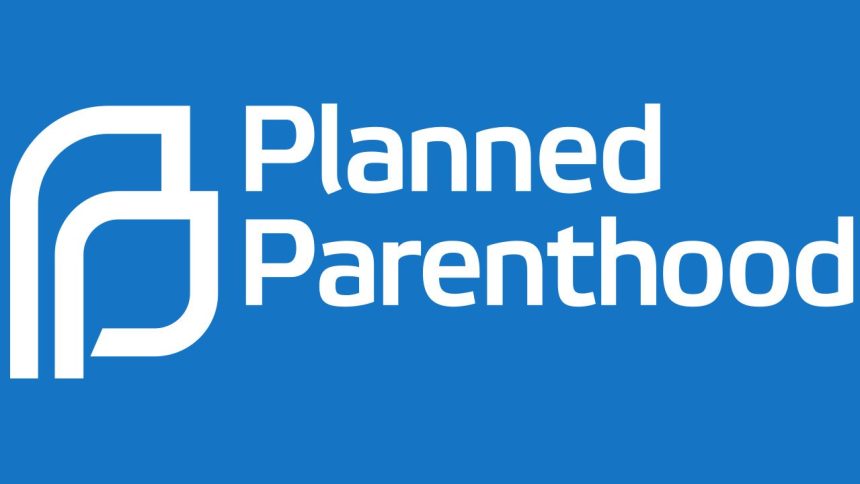The views expressed by contributors are their own and not the view of SuperTalk Mississippi Media
Contrary to popular belief, there is no line item in the federal budget to appropriate tax dollars to Planned Parenthood. So how does the nation’s largest abortion provider receive federal dollars?

The federal budget consists of three broad categories: mandatory spending, discretionary spending, and interest on the debt. Mandatory spending includes all those federal programs established by law – Social Security, Medicare, Medicaid, and various income security programs. Discretionary spending consists of defense and the remaining non-defense functions of government which are not part of the mandatory spending set.
Mandatory spending is essentially on “autopilot” as members of Congress do not vote annually to fund the included programs. In fact, mandatory programs, such as Social Security, can only be adjusted by amending law. Annual discretionary spending functions are funded by annual spending bills (omnibus budget bills or continuing resolutions) passed by both houses and signed into law by the President. Mandatory spending plus debt interest comprises nearly 70% of federal spending while discretionary spending consumes 30% of total federal outlays.
Planned Parenthood derives nearly half of its ~$1.5 billion of annual revenue from Medicaid, part of mandatory spending. This money flows from the Fed to Planned Parenthood without a single vote from Congress. In addition to abortions, Planned Parenthood provides a variety of women’s health care services which are eligible for Medicaid reimbursement, such as mammograms and pap tests. Just like Social Security and Medicare benefits, Medicaid pays Planned Parenthood without any action by Congress. In other words, no votes are cast by members of the House and Senate to fund Medicaid, including payments to Planned Parenthood and other abortion providers for eligible Medicaid services.
It’s important to note that in accordance with the Hyde Amendment, no federal money can be used for abortions, except in the case of rape or incest, or when the woman’s life is at risk. The Hyde Amendment is not permanent and must be extended as part of the discretionary budget. President Joe Biden’s proposed 2022 budget did not include the Hyde Amendment, which would have allowed federal tax dollars to fund abortion. Ultimately, Senate Democrats caved, thus including the Hyde Amendment in the final spending bill, preventing taxpayer funding of abortions.
A dab of Planned Parenthood money comes from Title X grants, which are part of discretionary spending. Title X grants fund family planning counseling, birth control, and other reproductive health services. Title X was passed into law by President Nixon in 1970. The government appropriates Title X monies in discretionary spending omnibus budget bills or continuing resolutions. Because it’s part of discretionary spending bills, Congress votes annually to fund Title X. Title X appropriations were $260 million for FY 2022, with $60 million going to Planned Parenthood as part of the abortion provider’s ~$1.5 billion budget.
Until 2019, Title X grant recipients, such as Planned Parenthood, could propose abortion as an option in family planning counseling. In 2017, President Trump issued an Executive Order that banned the suggestion of abortion as an option in family planning counseling, nor could an organization involved in providing abortions be eligible for Title X. These rules were promulgated in 2019. At that point, Planned Parenthood opted out of the Title X program.
Federal funding for Planned Parenthood has been a hot button issue in the Republican Primary for Mississippi’s Third Congressional District. Representative Michael Guest’s challenger, Michael Cassidy has attacked the Congressman for his votes to fund Planned Parenthood. It is interesting to note that for the budget years 2018-2021, Michael Guest’s and President Trump’s voting record are identical with respect to Planned Parenthood funding. Planned Parenthood participated in Title X Grants for only one of those years (2018) as Trump’s Executive Order had not yet been codified.
In 2021, President Biden repealed Trump’s Title X prohibition. As a result, Planned Parenthood re-entered the Title X grant program for Fiscal Year 2022. Keep in mind that when Biden assumed office in January of 2021, the FY 2021 budget — passed under Trump, denying Title X funds to abortion providers — was in effect until September 30, 2021.
To clarify, Congressman Guest did vote for the 2022 discretionary budget signed by Biden, which included Title X funding allowing recipients to include abortion as an option in providing family planning counseling services.
Because Title X funds are specifically earmarked for family planning services, we should bear in mind that several not-for-profit organizations which receive Title X funds do not counsel abortion as being an option in the provision of family planning services. In fact, these organizations have persuaded countless pregnant women against having an abortion, thus saving babies’ lives.
It is true that Congressman Guest could have voted against the 2022 budget unless Title X were removed, but Democrats have the majority and could easily pass the spending bill out of the chamber without a single Republican vote. If enough Democrats joined Republicans to form a majority vote *against* approving the budget, the government shuts down.
Such action endangers the flow of military pay and defense of the nation and risks interrupting Social Security and Medicare benefits – for starters. Historically, shutting down the government hasn’t worked out well for Republicans.
Even if Congress excluded Title X funding from the budget, which accounts for 4% of Planned Parenthood’s total revenue, the abortion provider would still participate in base Medicaid, which comprises 48% of their income.
Of course, with Roe v Wade being overturned, this issue will be moot in those states which enact laws banning all abortion. Planned Parenthood outlets in those states which choose to allow abortion will continue to receive federal money.
To boot abortion providers such as Planned Parenthood completely out of Medicaid and Title X grants, pro-life Republicans need to secure the majority in the House, a supermajority in the Senate, and a Republican President.
Without major reform to Medicaid, regardless of who Mississippi sends to Washington, federal dollars would continue to flow to Planned Parenthood.







